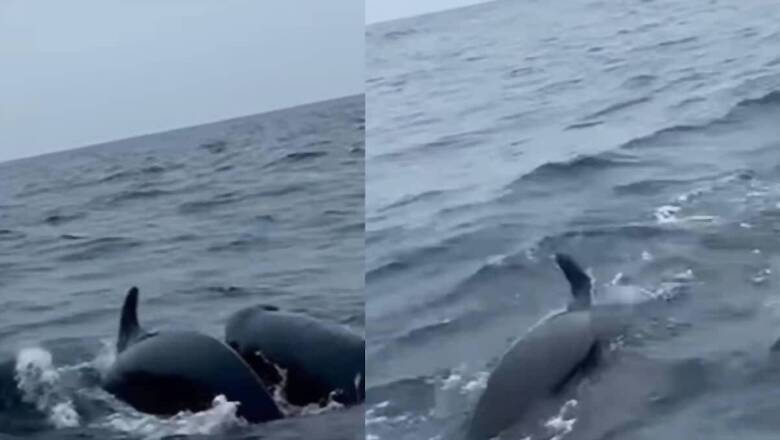
views
Tom Waddington, a ski coach, has recently completed a 2,000-nautical-mile (approx. 3704 kilometres) journey, covering an entire ocean. His solo trip had started in Newfoundland, Canada and ended in Penzance, UK. On the 19th of August, in about 45 days, 5 hours and 15 minutes, Tom crossed the North-South line at Bishop’s Rock in the Scilly Isles, United Kingdom. He reportedly completed this challenge in aid of the charity which helped him after his girlfriend Hatty Harrison had passed away in a car crash in 2020. According to an Instagram post, he had to finish the row in the Isles of Scilly, instead of Penzance, due to an incoming storm.
While he has been hailed for his achievement, his solo journey across the Atlantic Ocean has not been easy. His journey especially took a very bizarre turn when he got surrounded by a pod of pilot whales. What started as a few creatures in the ocean, quickly turned quite dangerous as hundreds of whales surrounded Waddington as he rowed ahead.
Footage of the situation was also shared on his official Instagram account about a month and a half ago. The video has now resurfaced and has been gaining a lot of attention from his followers on social media.
“Yesterday he found himself surrounded by a school of what we believe are long-finned pilot whales. Initially ten, then twenty, then more and more! It was an amazing experience until one of the excitable whales slammed into the side of his boat,” informs the caption of the post. “He was (rightly) terrified that their fun and games could mean that he loses his rudder in the process! As a solo, unsupported ocean rower, losing a rudder would be a major problem,” the caption reads further.
View this post on Instagram
Waddington remained unharmed, but the reality of sharing the sea with such massive animals became clear when one whale collided with his small boat. He later shared the experience on social media, describing the moment when the situation shifted from a serene nature documentary to something more daunting.
Experts believe that the whales Waddington encountered were likely long-finned pilot whales, known for their social behaviour and tendency to live in large groups, reported NPR. According to the National Oceanic and Atmospheric Administration, these whales often form close-knit pods and are common in the North Atlantic.



















Comments
0 comment